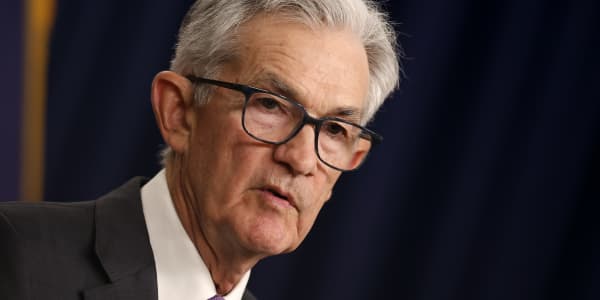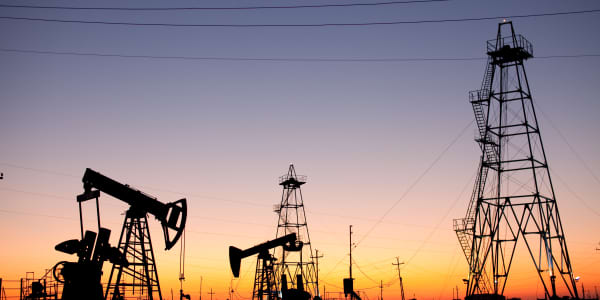This report is from today's CNBC Daily Open, our new, international markets newsletter. CNBC Daily Open brings investors up to speed on everything they need to know, no matter where they are. Like what you see? You can subscribe here.
What you need to know today
More jobs but higher unemployment
U.S. nonfarm payrolls for August increased by 187,000, above the 170,000 estimate. However, the unemployment rate jumped from 3.5% last month to 3.8%, the highest since February 2022. Average hourly earnings increased 4.3% year on year, below the forecast of 4.4%. Combined with the downwardly revised figures for June and July, those are clear signs the U.S. jobs market is slowing.
Winning week for markets
U.S. stocks cheered the moderate jobs report and mostly inched up Friday, giving major indexes their best week in months. European markets traded mixed. The regional Stoxx 600 closed flat, the U.K.'s FTSE 100 added 0.34% but other major bourses ended the day in the red. For August, the Stoxx 600 lost 2.8%.
Tesla's price cut hits shares
Tesla shares slid 5% after the company cut prices on its electric vehicles in both the U.S. and China. Additionally, the price of Tesla's Full Self-Driving software, its premium driver assistance option, was reduced by $3,000. CEO Elon Musk previously said the price would only ever go up. Despite the fall, Tesla shares are still up almost 100% this year.
JPMorgan Chase and Jeffrey Epstein
JPMorgan Chase notified the U.S. Treasury Department of more than $1 billion in transactions related to "human trafficking" by Jeffrey Epstein, a lawyer for the U.S. Virgin Islands told a federal judge. Those transactions dated back 16 years and were only reported after Epstein was arrested and killed himself in jail in 2019, said Mimi Liu, an attorney for the Virgin Islands.
[PRO] Slow start to September
U.S. markets are closed Monday for Labor Day and economic data coming out this week is on the light side. The heavy hitters, like the consumer and producer price indexes, will only be released later in the month. So keep an eye out for these signs that will indicate whether stocks will fall prey to the September seasonality — the month's historically been the weakest for stocks.
The bottom line
The U.S. economy added more jobs than expected in August, but the overall unemployment rate rose. This may sound counterintuitive since it's natural to assume an increase in the number of jobs will lead unemployment going down. But there's a simple explanation for that.
By definition, the unemployment rate is the number of unemployed people (people without a job but are actively looking for one), divided by the labor force (the sum of people both employed and unemployed), expressed as a percentage.
If the unemployment rate goes up, that means the proportion of people looking for a job compared with the total labor force has grown. That's straightforward enough. For the unemployment rate to go up even as there were 187,000 more jobs in August means there were more people who started looking for a job than people who secured one. The implication: The total labor force grew in August.
A growing labor force is a looser jobs market. That probably contributed to the lower-than-expected wage growth last month. As Bank of America U.S. economist Stephen Juneau wrote, "The broad message here seems to be that we are nearing full employment, with supply and demand coming more into balance."
That will come as a relief to Federal Reserve officials worried about a hot jobs market contributing to inflation. Investors, too, cheered the jobs report. They think there's a 93% chance the Fed will keep rates unchanged at its September meeting and a 65.3% chance at its November meeting, according to the CME FedWatch Tool. That's up from 80% and 44.5% a week ago, respectively.
Major indexes rose in response to the jobs report as well. The S&P 500 climbed 0.18% Friday, giving it a 2.5% increase for the week — its best weekly performance since June. The Dow Jones Industrial Average added 0.33% to close 1.4% higher for the week. The Nasdaq Composite was essentially flat, but ended the week up 3.3%. That was both indexes' best showing since July.
U.S. markets are closed today, so we'll have to wait to see if they can sustain this momentum and defy September's reputation as the worst month for stocks.
— CNBC's Jeff Cox contributed to this report
Correction: This article has been updated to reflect the correct month of the jobs report.





